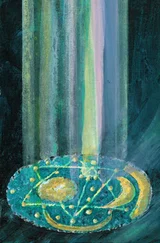On the way to the Ellyson Field bus, I bought a copy of Life with Stalin and Malenkov on the cover. The story inside had a headline, FALSE GOD DIES, CRISIS IS BORN, with pictures of the Kremlin at night, snow on the ground, a few lights burning, Russia in darkness. A guy named Edward Crankshaw said in an article that Malenkov and Beria had overthrown the Politburo within twenty-four hours of Stalin’s death. He didn’t say how he knew this. He certainly wasn’t there. I read a paragraph to Miles: “The men who have carried out this revolution, Malenkov and Beria, now work together. But the very violence of their first joint action has set the tone for times to come.…” In other words, the Russians would be worse enemies than ever.
“How do you figure they pull this shit off ?” I said. “Do they go in the room with their guns out and say, We’re the boss now ?”
“Yeah,” he said, “it’s sort of like a primary in Mississippi …” And turned away and closed his eyes.
The bus moved slowly, past the honky-tonks and the churches. I read a little story about a guy named Raymond who worked for the Voice of America, which was being investigated by Joe McCarthy. Nobody had accused him of being a Communist but he’d thrown himself in front of a bus in Cambridge, Massachusetts, leaving a note for his wife that said, “Once the dogs are set on you, everything you have done since the beginning of time is suspect.”
Jesus Christ.
That poor bastard.
The driver stopped at the locker club and we got out, went in and changed clothes. Then we walked slowly down the road to the main gate. Miles was quiet for a long time.
“Back to Anus Mundi,” he said at the gate.
By Saturday afternoon, there was still no message from Eden. I was trying to sleep when Bobby Bolden came to the barracks. He told me to get dressed. They were all going to a club that night to hear a blues singer named Champion Jack Dupree. Out in the boondocks somewhere.
“Catty loves this guy,” he said. “So she’s your date, if you get what I mean.”
He didn’t ask me if I wanted to go. He seemed to know that Eden wasn’t back from New Orleans and that I was feeling lost or abandoned or wasted. So he told me to go with them. And at dusk I was driving Bobby’s Mercury, with Catty beside me, Bobby next to the door, and Bumper, Rhode Island Freddie and Tampa crowded into the back seat. We drove northeast out of the city, along roads that Bobby Bolden knew, through a thousand acres of longleaf pine. He pointed out small clusters of unpainted houses, part of the turpentine camps where blacks had worked since slavery days. Tampa argued about the true name of the pine. His folks called it loblolly pine or sand pine, and Bumper said it didn’t matter, did it? Tampa said it sure did, ’cause after the Civil War, most of the cotton plantations closed. “Didn’t have no free labor no more,” he said. “So they planted the land with loblolly and sold it to the timber men. So it do matter, don’t it?”
“In Africa, they be callin it Mau Mau pine ’fore long,” said Rhode Island Freddie, and they all laughed. Catty glanced at me.
“We should’ve checked these damn local Mau Maus for guns,” she said to me. “Before we got in the car.”
“Not guns, woman,” Bobby Bolden said. “Knives. Long knives. As in the Night of the Long Knives …”
“It’s the Night of the Long Dicks everybody’s afraid of.”
They all laughed and then Catty pointed out a hawk circling over the pine forests and Bobby Bolden said, “Now that’s free. No guard duty. No salutin’. No racist bullshit. Free …”
The hawk suddenly dove out of our sight, and then Bobby Bolden directed me into a side road, through darker country, plunging across bogs where the odor was suddenly sweet and musky and we could see hundreds of shrubs blooming like white walls.
“Jesus, that’s beautiful,” Catty said. “What is that stuff, anyway?” Nobody knew the name of the shrubs, and I wished Eden was there, she would know, she knew everything , and Catty said she’d like to find a perfume that smelled like that, and then suddenly it was dark. I turned on the lights, and we were moving down a back road, unable to see much except the trunks of pines and a few black people walking slowly on the shoulder. Bobby Bolden leaned forward, peering into the darkness. He took Catty’s hand.
And then we began to hear music. It was way off, a thumping bass line at first, and then the tinny distant sound of brass, and now there were cars on the road, red taillights ahead of us, and more people walking in groups of four and five, all dressed up, and then we could see the lights of the club.
“Up there,” Bobby Bolden said. “Slow down. Real slow. Crawl , man. There’s people everywhere.… You see that white post? Take a right just past that.”
We pulled into a dirt field serving as a parking lot, and we all got out and stretched. Before us stood the Blackhawk. It was a long, two-story building with a neon sign glowing in the humid night, and music pounding from its open doors. And I realized that there were hundreds of black faces all around us in the dark, and black laughter floating on the night air, and the sibilant sound of black women shushing men and deeper voices answering with words I couldn’t hear.
“Better hold her hand,” Bobby Bolden said. “Never know who might be watchin from the woods.”
I took Catty’s damp hand, and Bobby Bolden led the way to the door, with Tampa, Bumper and Long Island Freddie behind us. I saw eyes fall upon us, looking at Catty and me, our white faces, then turning away, neither the men nor the women making eye contact with us, with the music louder and Bobby Bolden paying for us all at the door. A huge black man was taking the money, wearing a dark jacket and sunglasses, nodding as Bobby Bolden whispered something to him, then calling a thin light-skinned black man over, saying something to him. Catty’s hand was sweating now, and I wondered if she saw this as the future, barred from white clubs, excused, introduced, explained in the black world. I thought: No wonder your hands are wet. They might be wet for the rest of your life .
The light-skinned man led us to the last empty table in the large smoky room, and we sat down, I to Catty’s left, Bobby Bolden to her right. I glanced around and saw the silhouttes of men and women against a bar along the far wall. At the tables beside us, all the faces were black, some shiny with sweat, the men dressed in suits, the women wearing flowers in their hair and bright dresses, bottles and ice buckets in front of them, a few people turning to look at the white faces, then turning back to the music. On the bandstand in front of us, seated at a piano, was a small neat man. Champion Jack Dupree. Singing.
Now some people calls me a junker …
The crowd roared.
Cause I’m loaded all the time.
Another roar.
I just feel happy and feel good all the time …
Bobby Bolden laughed and said we wouldn’t hear this on the radio, a song about being a junkie, and then told me to watch the way Champion Jack played the piano with the thumb tucked under the fingers of his left hand, to make the bass notes jump, told me the man was a legend back home in Naptown, where he’d played for years in the thirties, told me he came from the same New Orleans orphanage where Louis Armstrong lived as a kid, was a boxer during the Depression, later played at the Cotton Club. Bolden glanced at the door then and looked around sternly at the other black faces, as if saying to them, Be cool, don’t start any shit, these white folks is my guests . And Dupree sang on: Please write my mother, tell her the shape I’m in …
Читать дальше












